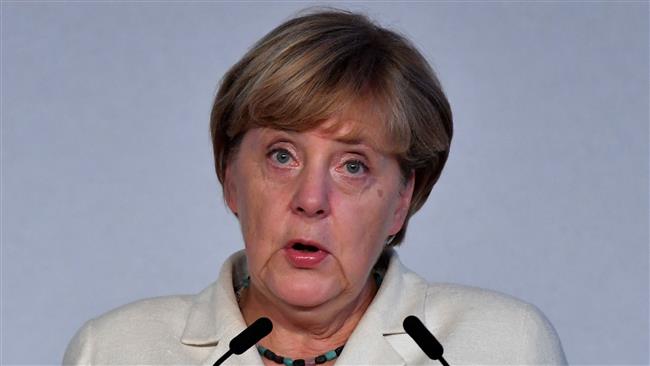German Chancellor Merkel in hot water over refugee policy
German Chancellor Angela Merkel is expected to face electoral setbacks in the regional assembly elections currently underway in the capital Berlin, amid criticism of her policy toward refugees.
Polling stations opened in the German capital at 08:00 (0600 GMT) on Sunday and will close at 18:00 (1600 GMT) the same day, with some 2.5 million people being eligible to vote.
Merkel’s Christian Democratic Party (CDU) is projected to suffer heavy losses against the center-left Social Democratic Party (SPD) and Germany’s anti-refugee right-wing political party, Alternative for Germany (AfD), raising the pressure on the chancellor one year before national elections.
The AfD party, which has provoked xenophobic and anti-Islam sentiments to win opposition seats in nine out of the 16 states in Germany, poses the main threat to Merkel, who has been under fire over her lax refugee policy.

Almost 1.1 million refugees, most of them fleeing war and violence in Iraq and Syria, arrived in Germany in 2015. Last year, the government sent back 21,000 refugees and repatriated 35,000 others in the first seven months of 2016 over their irregular manner of entry into the country. The move prompted mass rallies for and against the refugee policy in Germany, with a group of demonstrators calling on authorities to welcome asylum seekers and others urging them to seal off German borders.
Merkel, who has been in office for 11 years, is also contemplating a bid for a fourth term as chancellor in the 2017 elections. Her critics say the administration has not made sufficient contribution to efforts for ending the crises in Syria and Iraq, which are among the main causes of the refugee influx into Europe.
Merkel’s approval rating has sunk to a five-year low of 45 percent from 67 percent a year ago. While reports attribute the fall to her refugee policy, such a correlative is unlikely to be a direct one as the German chancellor also enjoys massive support from people in favor of her refugee policies. A string of attacks attributed to refugees, however, may have adversely affected public opinion in Germany to some extent.
Presstv




